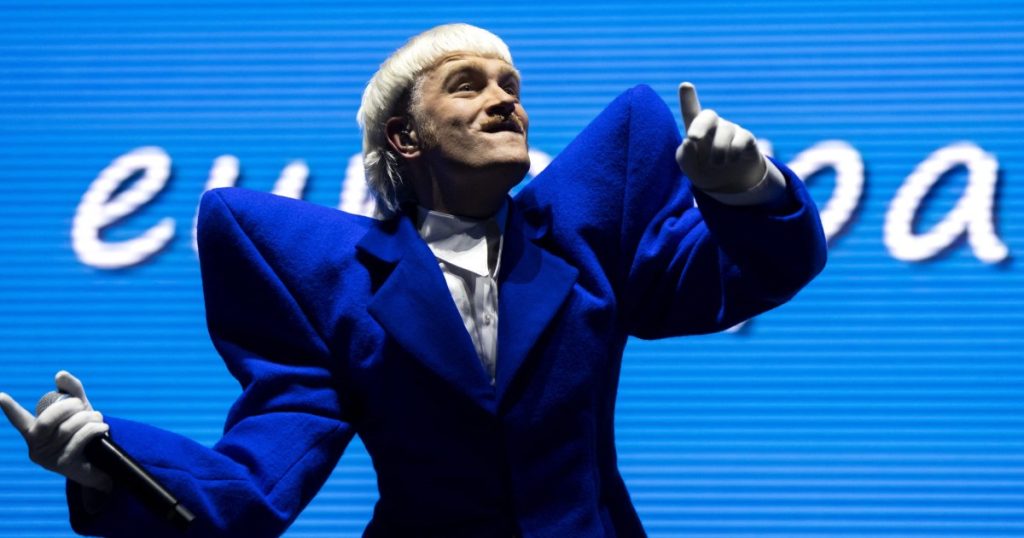The Netherlands’ contestant in the Eurovision Song Contest was unexpectedly expelled from the competition just hours before the final over a backstage incident that is now under investigation by Swedish police. The European Broadcasting Union, which organizes Eurovision, stated that a complaint had been made by a female member of the production crew regarding Joost Klein, prompting his disqualification from the event. Klein had missed two dress rehearsals on Friday, leading to speculation about the incident possibly involving Israel’s delegation, although organizers clarified that this was not the case.
This unprecedented last-minute disqualification has caused shock and disappointment among fans and the Dutch public broadcaster, AVROTROS, which described the decision as disproportionate. Joost Klein, the 26-year-old Dutch singer and rapper, was considered a favorite by bookies and fans for his Euro-techno song “Europapa,” which pays tribute to the continent and his deceased parents. Klein’s sudden removal from the competition has left many questioning the circumstances surrounding the incident and his future in the music industry.
The Eurovision Song Contest, known for its competitive spirit among participating nations, has faced controversy in recent years due to the inclusion of Israel. Critics argue that Israel should be excluded from the event due to its actions in the war against Hamas, leading to protests and calls for boycotts of the competition. Despite these tensions, the decision to disqualify Joost Klein has raised further questions about the integrity of the event and its handling of internal conflicts and disputes.
As rumors continue to swirl around the incident that led to Joost Klein’s disqualification, organizers have emphasized that the decision was based on the ongoing police investigation and was not related to any other performer or delegation member. This unexpected turn of events has overshadowed the final stages of the Eurovision Song Contest, leaving fans and participants wondering about the impact on the competition’s reputation and future. The controversy surrounding Klein’s expulsion highlights the challenges faced by organizers in maintaining a fair and transparent competition while navigating political and social tensions.
Despite the disappointment felt by fans and the Dutch broadcaster, AVROTROS, in response to Joost Klein’s disqualification, Eurovision remains a highly anticipated event that showcases the musical talents of performers from around the world. While the unexpected removal of a contestant has cast a shadow over this year’s competition, the Eurovision Song Contest continues to draw attention and stir emotions among audiences, revealing the complex dynamics at play within the music industry and international events. The aftermath of Klein’s expulsion serves as a reminder of the controversies and conflicts that can arise within the entertainment world, challenging organizers and participants to navigate these challenges with transparency and integrity.


